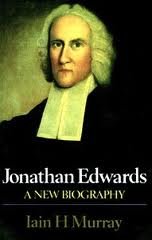
Our society has become very good at knowing exactly what course, program and service to use to instill change. You struggle with something and they tell you attend that meeting, do that training, join that group. You struggle with anger, well there’s this group that can help. You are not good with money, well I know exactly the program you need. You are having problems with your relationships? What about attend this service. You can’t read or pray? Try this course. Don’t get me wrong, there are times when that’s exactly what it’ll take.
But while there are times this is true, I think most of the times change happens slowly and gradually.
But I think all this has made us believe that change will take a miracle and something out there to make it happen. That it’ll involve a special attention and a whole other group of people. Sometimes it almost sounds impossible to change unless a revolution happens. But while there are times this is true, I think most of the times change happens slowly and gradually. You might need a course or program to become aware of what you need to work on. A conversation with a friend might go a long way. And a program might expose an area where you need to pay close attention. But it’ll take deliberate daily initiative to make it happen. In the end a program or social group won’t change you. It’ll probably not involve a miracle or a revival but start with little daily habits.
Discipleship is Slow and Messy
I’m always amazed by the life of Jesus’ disciples in the Gospel accounts. Though these guys walk with God literally speaking, for three years still they struggle with the same things we do today. There’s unbelief, love of money, desire to be great, fear, impatience, lack of self control, struggle with prayer and the list continues. It takes them three years to get who Jesus is and start getting why he came. Even then only after persecution do they go out of their comfort zone to proclaim his kingdom. It takes them the addition of Paul to get how big the scope of Jesus kingdom is. And I believe the journey of sanctification needed to continue happening. Change didn’t just happen or take a miracle although they saw and did many. It was slow and sometimes even tiring to Jesus.
Other times it’ll look like we are going three steps ahead and four backwards. Sometimes we won’t realize how much we have changed until we look back.
The ministry of the Holy Spirit came in for this very purpose. That he would remind these forgetful and fearful bunch of disciples about Jesus and what he had accomplished for them. The ministry of the Spirit would then be a lifetime work in the hearts and lives of believers. If that’s what it took for the first disciples then you know you need more than a miracle, more than a revival. Actually with God’s spirit you need to start with the little daily habits before sanctification is complete. Change will be slow, sometimes even hard to put a finger on it. Other times it’ll look like we are going three steps ahead and four backwards. Sometimes we won’t realize how much we have changed until we look back. It’ll be easy to assume something out there will fix our situation. But to our suprise it’ll take the word of God applied deliberately to our daily lives especially those daily habits. It’ll start small before it gets big but in the end we’ll be surprised what has become of us.
Our obsession with revivals and conferences make us believe change will be instant.
Think Small to See Big Changes
I think we set ourselves up as believers when we imagine we’ll wake up one day being the person we admire. Our obsession with revivals and conferences make us believe change will be instant. That I will attend a meeting and be a totally different person tomorrow. That’s how we sell out events, come and your life will never be the same again. And again I want to be careful here, sometimes that’s the trigger we need. Sometimes we need to get away from all the distractions and our comfort zone. But in the end it won’t be an event that changes us, it will be what follows. It’ll be the direction our lives takes that sees us grow or soon shrink back.
Think about how you became a Christian. For those with an impressive story of having been an absolutely terrible person before we met Jesus it’s amazing to see what he was able to accomplish in us and through us. The day our lives took a turn from rebellion to obedience is one we can recall vividly. We know the day, the preacher and perhaps the clothes we were wearing. But the truth is, it was the first of the many that has brought us transformation. The Spirit opened our eyes then but the process of change and transformation took time and sometimes we faced real temptations to return to that former way of life. It was the first day of the many days needed for sanctification.
What seems small and almost inconsequential has brought about unimaginable change in us.
Actually if we looked carefully we’d see God has been fixing us one problem at a time. It’s been the small sins that the world thinks less about that he’s been killing with his word by his Spirit. One by one and sometimes returning back to those that had only fainted he’s made us different. With a service here, a fellowship there and a conversation with a brother he’s made us aware of what is ailing us. Then by the power of his word he has convicted us of our sin and when we yield to the Spirit he’s worked on that area. What seems small and almost inconsequential has brought about unimaginable change in us. You want to see real change in your life? Take small steps and you’ll see big changes in time.
Start with the Little Daily Habits
Our lives can be summarised by our daily choices. There will be days that are very significant. Days when our walk with the Lord feels so close and so intimate. When we are reading the word and praying for hours. Days we can’t believe people still struggle with sin. Days when our fellowship is on fire. Days when we are truly obeying Jesus and his great commission. But there are others that we wish we slept through and woke up the following day or weekend. Days when we feel everything is going wrong in and around us. Days when we find ourselves falling on the same sins we repented of. Days when we regret words we’ve used. Days when fellowship goes out of hand. When friends betray and our hearts are broken. Days when we miss the words to pray.
If we want to see real change in our lives it’ll have to start with our small daily habits.
The good thing is all these things happen for a season. The good and the bad don’t last. The difference is the daily habits we keep. If we insist on fellowship not matter what happens then we’ll be amazed what it can do. Sometimes I have gone for a fellowship meeting when every fibre in me wanted to just stay at home. To my suprise it was exactly what I needed. Sometimes you lack the words to pray at the beginning but as you start you find yourself getting them and enjoying that time. After COVID there’s always a temptation to say today I’m feeling tired or unwell maybe I should stay indooru and watch something online. But the day you pull yourself out of that sofa you find you not only needed to go out but you had one of the best conversations after church. Someone said something that uplifted your spirit.
If we want to see real change in our lives it’ll have to start with our small daily habits. Perhaps we don’t need to start with reading 5 chapters and praying for 3 hours in the morning. We might find reading and meditating on small portions of the word every day brings such a change in us. A commitment to start every day with 5 minutes of prayer might do us more good than an overnight kesha once in a while. A commitment to work on an area of need every day is what we need. You struggle with anger, what about not responding immediately when someone says something that offends you today. If you start with taking the time to think things over then you might find there was no cause to be angry. You struggle with Bible reading, what about starting with those small portions with a title in most Bibles. Sometimes it’s like 2 or 3 verses. You struggle with talking to people after church. Coming Sunday just talk to one of them who looks more like you. Chances are they want someone to talk to them. Start with the little spiritual habits and you’ll be amazed where you land in the long run.
And don’t let anyone tell you God only works through instant miracles. Most of the times he works through our little daily mundane choices.
Even Writing this Took Time
Let me let you in on a secret. It’s taken me a whole week to write this article. I got the idea last weekend and wrote the title down. Later I thought of a way to start that I kept changing. I paused a day to think if it would make sense or cause more trouble. Then I went ahead with the first two paragraphs, then the body and later the last part. Finally I needed some editing time before sleeping on it once more. Now there are times I write in one sitting then leave it to simmer to post later. Other times I do everything but then I delete the whole thing. What am I saying? Things don’t happen in an instant. It’s only Hollywood that communicates that though we know how long it takes them behind the scenes. If we took time to work on ourselves and what we believe one step at a time we would be amazed what God accomplishes in us and through us. And don’t let anyone tell you God only works through instant miracles. Most of the times he works through our little daily mundane choices. He works through that unimpressive fellowship and through our daily spiritual habits.














